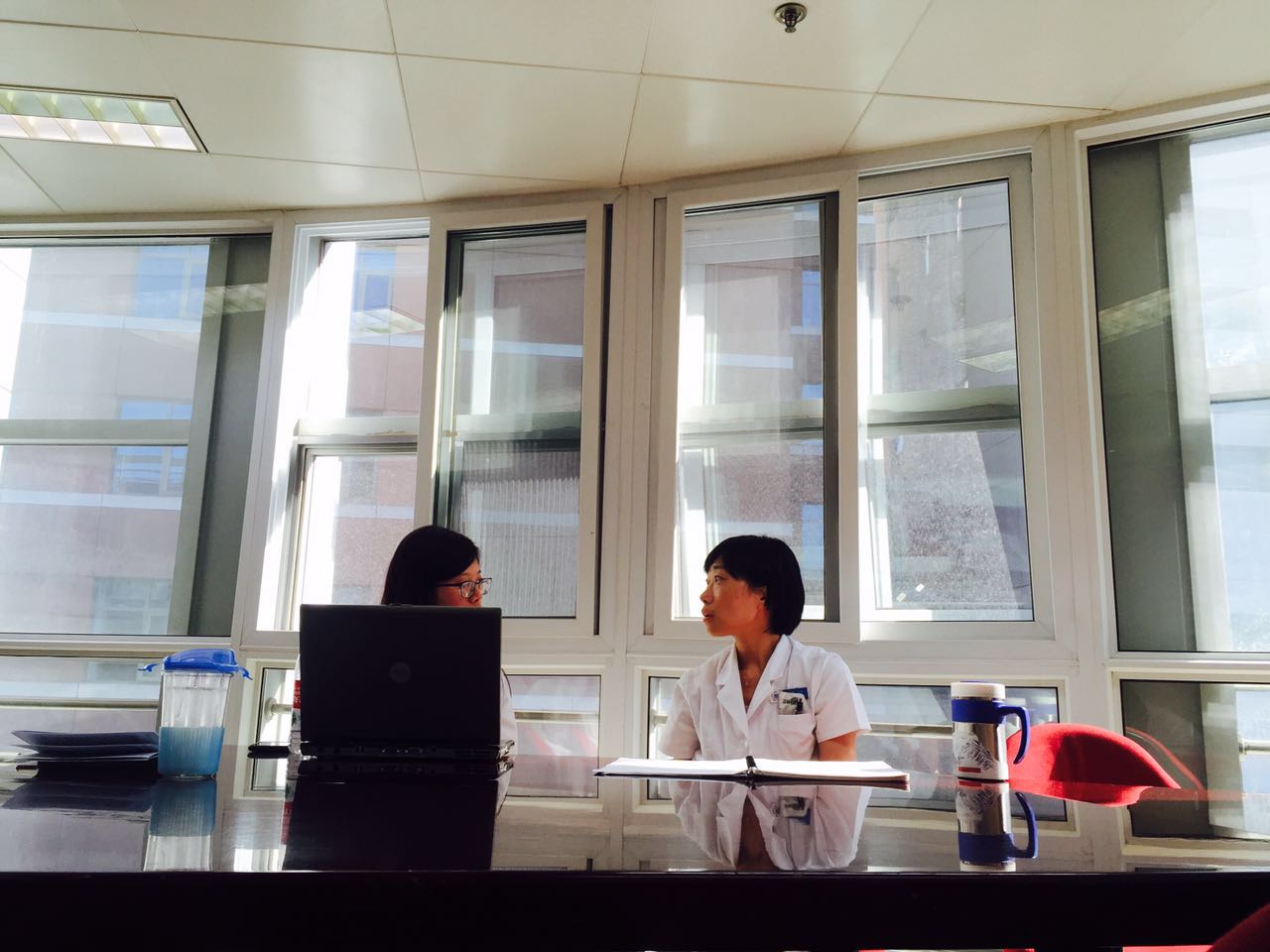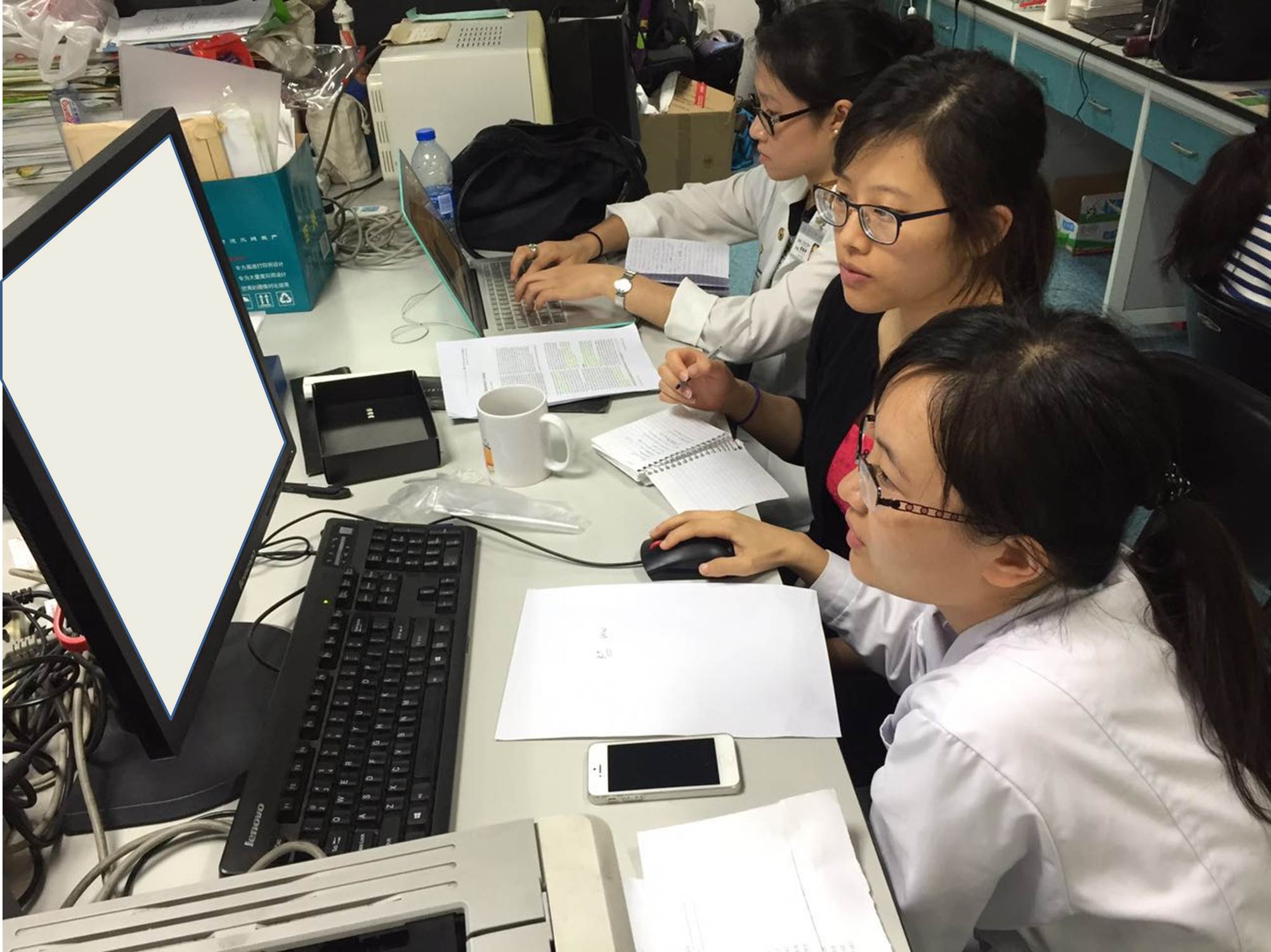"Life-Changing Experience" - Pharmacy Students on Rotation in China
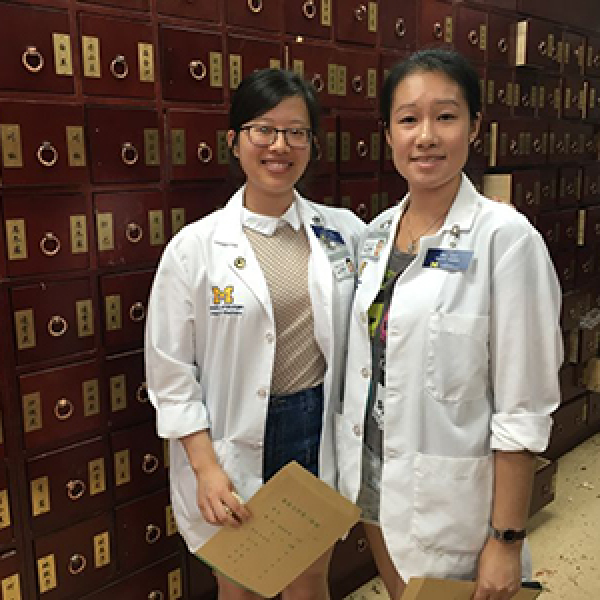
“The Peking University Third Hospital (PUTH) rotation is one I had been looking forward to since P1 year when I first heard about its possible inclusion as an Advanced Pharmacy Practice Experience (APPE) rotation,” remembers Lisa Chen, PharmD’17. Ms. Chen and Jing Xiao, PharmD’17, spent a month this summer on rotation at the PUTH in Beijing, China. They spent the first two weeks in the Traditional Chinese Medicine (TCM) department, and the remaining two weeks in the nephrology and neurology departments, respectively.
“TCM is one reason I became interested in studying pharmacy, and this rotation allowed me to explore this major part of medical history and current Chinese medical practice at its origin,” notes Lisa. “TCM is more holistic, and treatments are based on many factors,” explains Jing. “Many hospitals in China incorporate both TCM and western medicine.” On rotation, they learned TCM theory, how patients are diagnosed, and shadowed several outpatient physicians who practice TCM. They also learned about herbal medicine formulations and visited a processing plant as well as a decoction center that produces and markets traditional Chinese medicines.
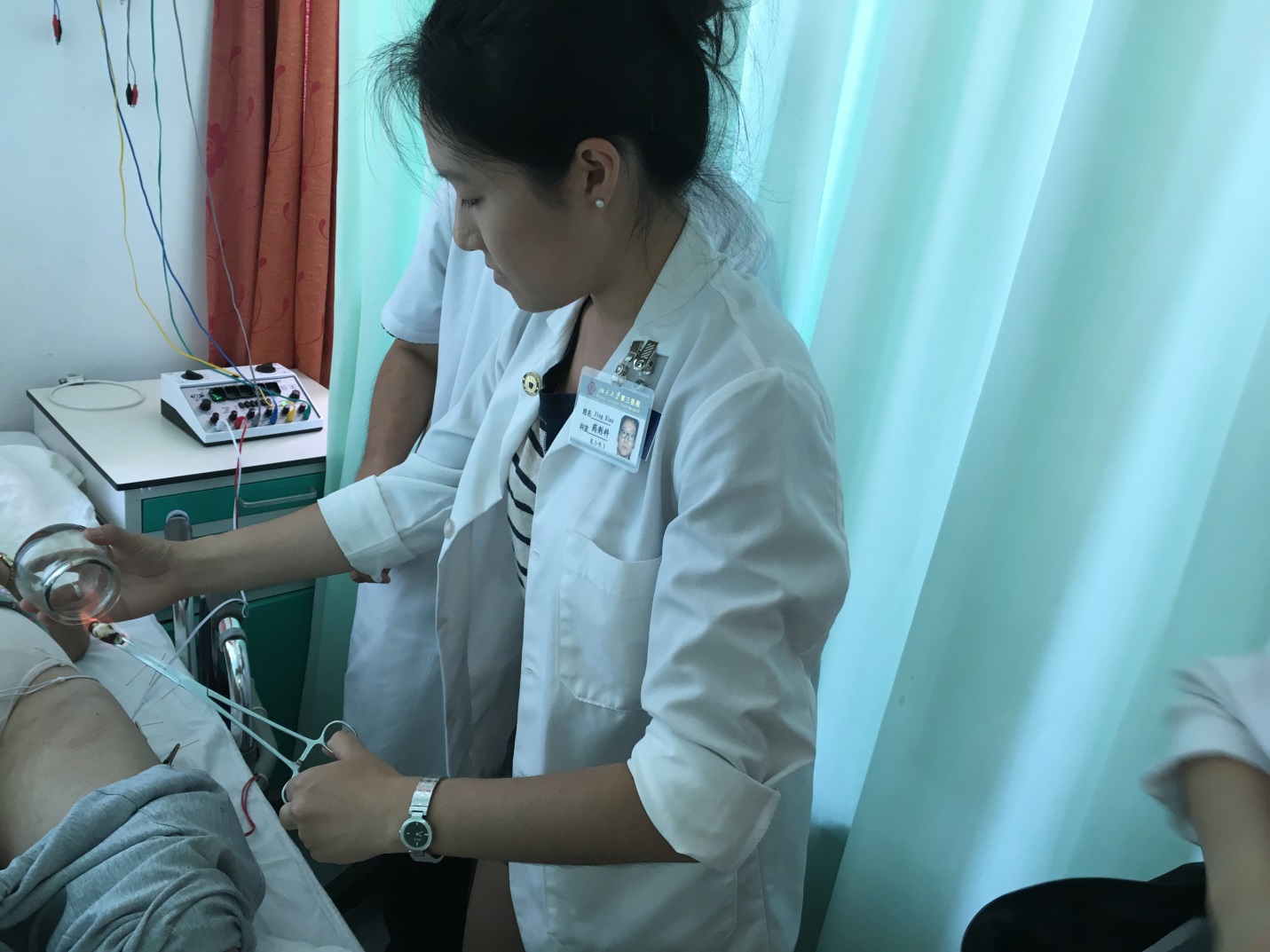 TCM incorporates many different treatment modalities, including acupuncture and cupping. Lisa and Jing learned a variety of concepts surrounding acupuncture and cupping, such as the different diseases they are used to treat. They even got to experience acupuncture on themselves and provided cupping therapy for some patients. Both techniques are meant to improve the flow of qi, or, energy, throughout the body and, in so doing, keep the opposing yin and yang forces balanced. These are all major concepts of TCM theory. Acupuncture involves inserting needles into the skin, while cupping consist of applying a heated glass cup to the skin. The cup creates a vacuum, causing the vessels underneath to expand, improving blood flow.
TCM incorporates many different treatment modalities, including acupuncture and cupping. Lisa and Jing learned a variety of concepts surrounding acupuncture and cupping, such as the different diseases they are used to treat. They even got to experience acupuncture on themselves and provided cupping therapy for some patients. Both techniques are meant to improve the flow of qi, or, energy, throughout the body and, in so doing, keep the opposing yin and yang forces balanced. These are all major concepts of TCM theory. Acupuncture involves inserting needles into the skin, while cupping consist of applying a heated glass cup to the skin. The cup creates a vacuum, causing the vessels underneath to expand, improving blood flow. 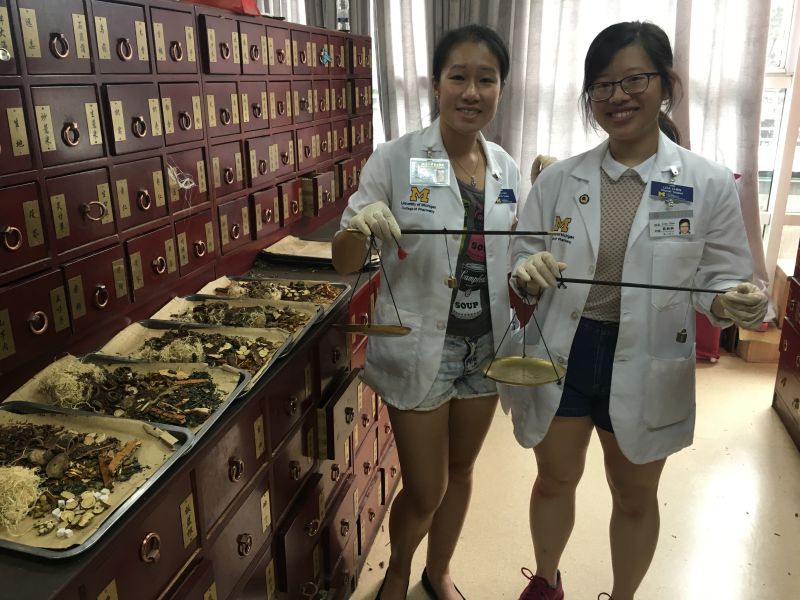
After the TCM portion was completed, Lisa and Jing went off to their respective clinical departments for the remaining two weeks.
Jing was in the neurology department, focusing on cerebral infarction. She rounded on patients, led a journal club, participated in topic discussions, had talks with a neurology specialist, assessed patients’ medications with her preceptor, and provided patient education. “We mainly counseled patients on how to take their medications. The common mindset is sharing too much information about side effects would scare patients and deter them from taking their medications,” explains Jing.
Lisa started her nephrology rotation at the same time. She learned about commonly used drugs, participated in journal clubs and topic discussions, clinically assessed patients’ medications, and provided patient education. Additionally, she observed several renal biopsies and toured the outpatient hemodialysis clinic. “I was able to see some interesting cases, including adverse TCM drug reactions. It was intriguing to join the medical team on the PUTH Renal Ward as a part of the clinical pharmacy team and learn about conditions we had not covered in the classroom and how to treat them.”
“All of the preceptors, students, and other medical team members were incredibly kind and patient teachers and friends. This is an experience I will never forget, and the insights in medical practice that I gained will surely carry over to my future practice,” states Lisa. “The people we met were absolutely wonderful. We learned so much about their unique values and customs with regards to health care,” adds Jing. “This rotation was truly a life-changing experience for us, and it has helped us to broaden our perspectives.”
